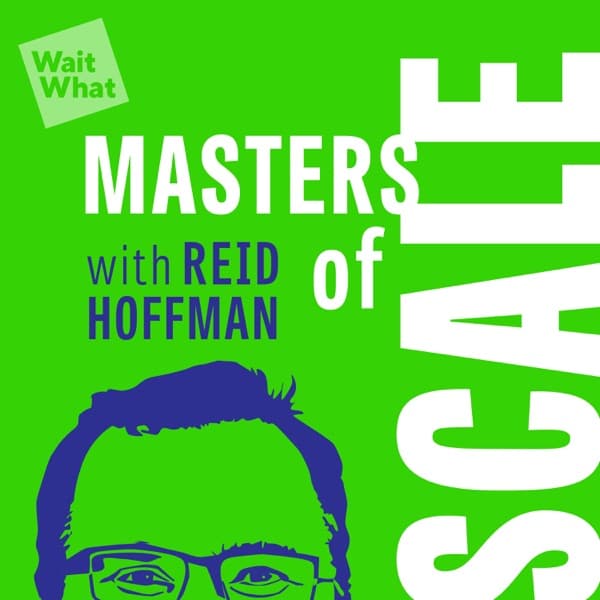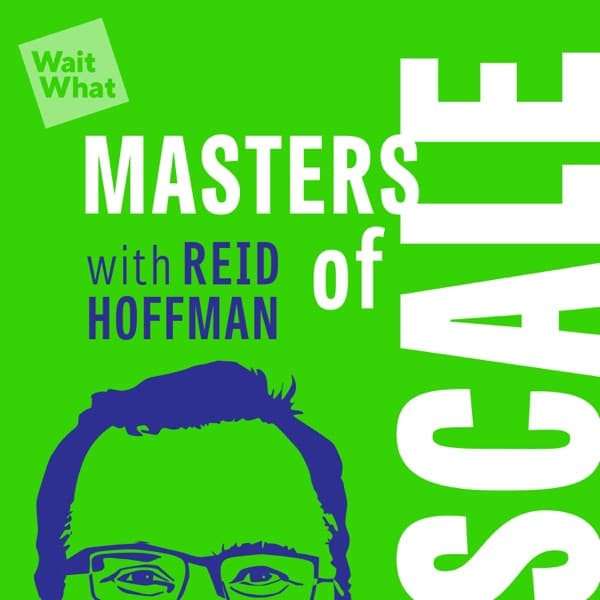Lenny's Podcast: Product | Growth | Career: The discussion focuses on crisis management for startup founders, emphasizing the inevitability of crises and the importance of resilience and strategic decision-making.
Lenny's Podcast: Product | Growth | Career - A founder’s guide to crisis management | Uri Levine (Waze co-founder, serial entrepreneur)

The conversation with Uri Levine, co-founder of Waze, delves into the types of crises startup founders face, primarily cash crises and loss of product-market fit. Levine emphasizes that crises are inevitable in the startup journey, and founders must be prepared to handle them effectively. He categorizes crises into cash crises, where financial plans are jeopardized, and product-market fit crises, where the product no longer meets market needs. Practical advice includes acting swiftly to extend runway during cash crises and considering pivots when product-market fit is lost. Levine stresses the importance of transparency with teams during crises and maintaining a strong leadership presence to keep teams motivated. He also highlights the necessity of making decisions with conviction to ensure team alignment and success. The discussion underscores that while crises cannot be avoided, having sufficient cash reserves can provide a buffer, and the ability to adapt quickly is crucial for survival.
Key Points:
- Crises are inevitable in startups; founders must be prepared to handle them.
- Two main types of crises: cash crises and loss of product-market fit.
- Act quickly to extend runway during cash crises; consider pivots for product-market fit issues.
- Transparency and strong leadership are crucial during crises to maintain team motivation.
- Having sufficient cash reserves can help buffer against crises, but adaptability is key.
Details:
1. Understanding Startup Crises 🌪
- Founders typically encounter two primary types of crises: cash crises and operational crises.
- A cash crisis occurs when a startup faces a shortage of funds, jeopardizing its ability to continue operations. This can be addressed by improving cash flow management, securing new investments, or reducing expenses.
- Operational crises involve disruptions in the daily functions of the company, such as supply chain issues or technology failures. Addressing these requires robust contingency planning and adaptive problem-solving.
- To effectively manage these crises, founders should prioritize building a crisis management plan that includes identifying potential risks, establishing communication channels, and ensuring financial reserves.
- Case studies show startups that successfully navigated crises often leveraged strong leadership, clear communication, and strategic pivots to adapt to changing circumstances.
2. Navigating Cash and Product Market Fit Crises 💸🔄
- Losing a customer or a disappearing investor indicates a crisis situation.
- Losing product market fit requires revisiting and potentially redefining your entire strategy.
- Persistent effort and resilience are crucial traits for successful startup CEOs during crises.
- Making decisions with conviction is vital to ensure team alignment and success.
- The founder must take ultimate responsibility for the company's success or failure.
- Relying solely on external entities for solutions is not advisable; take ownership of the company's future.
- Implementing a structured approach to crisis management can help regain control, such as identifying key areas of weakness, prioritizing issues, and developing a clear action plan.
- Analyzing successful case studies of companies that navigated similar crises can offer valuable insights and strategies.
- Consider adopting a customer feedback loop to continuously align the product with market needs and prevent future misalignments.
3. Introducing Uri Levine and His Book on Crisis Management 📚
- Founders should expect and prepare for crises, as they are inevitable in the startup journey. This emphasizes the need for resilience and adaptability.
- Uri Levine has co-founded Waze and nine other companies, successfully selling two for over a billion dollars, demonstrating his profound entrepreneurial acumen.
- His involvement with 20 startup boards and advisory roles for over 50 startups highlights his extensive experience and insight into the startup world.
- Levine's book 'Fall in Love with the Problem, Not the Solution' advises entrepreneurs to focus on solving problems rather than becoming attached to specific solutions, a strategy that supports effective crisis management.
- The journey of building a startup is depicted as moving from one crisis to another, underscoring the importance of being prepared for continuous challenges.
- The segment aims to provide founders with tools to navigate and manage crises effectively, stressing the value of preparedness.
- The re-release of Levine's book indicates the ongoing significance of mastering crisis management skills in entrepreneurship.
4. Insights from Uri Levine on Crisis Strategies and Resilience 🚀
- WorkOS provides APIs to rapidly integrate enterprise features like SAML authentication and skim provisioning, essential for SaaS applications scaling to enterprise clients.
- The quick integration process of WorkOS APIs allows developers to focus on other features, significantly reducing product development cycles.
- Hundreds of companies, including Vercel, Webflow, and Loom, rely on WorkOS, highlighting its robustness and reliability.
- Recent acquisition of Warrant enhances WorkOS's capabilities in managing complex authorization needs using Google's Zanzibar model.
- WorkOS offers a free tier that supports up to 1 million monthly active users, making it a cost-effective option for startups needing role-based access control.
5. The Impact of Global Events on Startups 🌍
5.1. Rippling's Role in Startup Efficiency
5.2. Transition Note
5.3. Author Uri's Book Re-release
6. Adapting to Market Shifts: Lessons from Waze 📈
- Building a startup is a journey from one crisis to the next, highlighting the importance of resilience and adaptability.
- Recent years have seen significant global crises, such as COVID-19, interest rate changes, inflation, and wars, necessitating strategic updates to business approaches.
- The decision to update the book with a new chapter on crisis management reflects the need for continuous learning and adaptation in entrepreneurship.
- Releasing the new edition as a paperback aims to reach a wider audience by making it more accessible and easier to read.
- The book serves as a step-by-step guide for building a successful company, emphasizing the importance of managing multiple crises.
- The author's motivation to write the book stems from a desire to make a bigger impact as both an entrepreneur and a teacher, sharing knowledge to help others succeed.
7. Uri's Philosophy: Never Give Up and Embrace Responsibility 💪
7.1. Uri's Philosophy and Proactive Approach
7.2. Case Study: 'Water Chat' and COVID-19 Impact
8. Uri's Entrepreneurial Journey and Future Plans 🌟
- The inability to pivot due to insufficient funding led to the shutdown of a restaurant reservation business during COVID-19.
- COVID-19 was a catalyst for crises across multiple companies, highlighting the unpreparedness of many founders.
- Entrepreneurs must focus on their startup's specific challenges rather than industry-wide crises.
- A crisis is defined as the disappearance of something significant, such as a major revenue stream or funding.
- Losing a major customer can result in a loss of revenues and necessitate adaptation.
- A cash crisis occurs when expected cash flow is disrupted due to lost funding, revenues, or customers.
- Loss of product market fit can occur due to regulations, competition, or loss of product value.
- Maintaining product market fit is crucial, as it involves creating tangible value for customers.
9. Dealing with Crisis: Practical Advice and Real-Life Stories 🛠
- Retention should be the primary focus as it directly indicates value creation; customers returning are a sign of success.
- The startup journey is iterative and requires learning from failures to eventually find a successful method.
- Significant external changes, like regulation shifts or new competitors, can make a product irrelevant, requiring a strategic restart.
- The iPhone's introduction illustrates market disruption; major players like Microsoft, Nokia, and Motorola declined due to a slow adaptation.
- Losing product-market fit calls for innovation and a return to foundational strategies to regain relevance.
10. The Role of Leadership and Transparency in Crisis 🔍
- Regulatory changes can heavily impact startups, exemplified by Fibo's shutdown due to Israeli tax authority regulations.
- Fibo's platform revolutionized tax filing, enabling users to complete returns in under three minutes, thus increasing market size by 25% in a year.
- Despite its innovative service, Fibo's closure highlights the necessity for startups to be adaptable and vigilant regarding regulatory shifts.
- Leadership plays a crucial role in navigating regulatory challenges, requiring proactive monitoring and strategic planning to mitigate risks.
- Transparent communication with stakeholders during crises can bolster trust and aid in crisis management, showcasing effective leadership.
11. Pivoting Successfully: Key Considerations and Strategies 🔄
11.1. Pivoting Successfully: Key Considerations and Strategies 🔄
11.2. The Dropbox Analogy: Navigating Market Shifts 📦
12. Uri Levine's Journey: From Crisis to Success 🌟
- In 2010, Google announced free turn-by-turn navigation, posing a major threat to Waze and other companies like TomTom, causing a significant industry disruption.
- Despite the crisis and advice to sell Waze for $20-30 million, Uri Levine and his team focused on differentiating Waze by targeting daily commuters, which was a strategic pivot from Google Maps' approach.
- Waze's emphasis on frequent use for daily commuting made it less detailed but more user-friendly, which was key to its eventual success and acquisition by Google.
- The crisis led to strained investor relations, but strategic partnerships, such as an unexpected investment from Microsoft, were crucial in navigating through financial challenges.
- Uri Levine identified key crises faced by founders, including cash crises from losing investors or customers and loss of product-market fit due to market changes or competitive threats, underlining the resilience required for startup success.
13. Financial Strategies for Crisis Management 💰
- In a cash crisis, quickly identify what aspects of your business are impacted (e.g., run rate, product, revenue stream) and determine if the issue is temporary or permanent.
- Example: A company with $5 million annual revenue and a $200,000 monthly burn rate needs $2.5 million to operate annually. If revenue halves, with $2.5 million in the bank, they have six months of runway left, necessitating immediate action to adjust expenses and extend the runway to 12 months.
- Decisions must be made immediately to maintain flexibility; delaying decisions reduces available options and makes it harder to adjust expenses to extend the runway.
- Communicate clearly within the organization during a crisis to ensure everyone knows the strategy, which helps retain top talent and prevents the perception of being a sinking ship.
- Two main types of crises: cash crises (revenue drops or investor withdrawal) and product-market fit crises (market changes or competitor actions).
- In cash crises, assess the real impact on the business and estimate the duration of the crisis to plan effectively.
14. Overcoming Challenges in Travel Startups During COVID-19 🏔
14.1. Challenges Faced by Travel Startups
14.2. Strategies for Overcoming Challenges
15. The Importance of Team and Investor Alignment in Crisis 🤝
- During a crisis, it is essential for companies to resize to become lean and small, securing just enough capital to survive a projected downturn, as seen with a company's strategic planning up to 2022.
- Successful outcomes in business often rely heavily on luck, with Silverstein estimating it accounts for 85% of success, leaving 15% to skills.
- Founders must embrace full responsibility for their company's outcomes, even when facing uncontrollable circumstances, to maximize chances of success.
- Persistence is a critical trait for startup CEOs during crises, emphasizing the need to continue efforts despite multiple failures.
- Decisive leadership, characterized by making decisions with conviction, is vital for ensuring team alignment and enhancing the probability of success.
- A notable example of perseverance is highlighted by a travel industry startup that faced near failure multiple times but managed to survive, illustrating the importance of resilience.
16. Practical Steps for Crisis Management and Communication 📢
16.1. Reasons to Give Up
16.2. Importance of Perseverance
16.3. Engagement and Motivation
16.4. Leadership in Crisis
17. Exploring Opportunities and Validating Pivots 🌱
17.1. Team Transparency and Crisis Management
17.2. Importance of Key Metrics
17.3. Acting Fast in Crisis Situations
17.4. Cost Reduction Strategies
17.5. Product-Market Fit and Pivoting
18. Uri Levine's Insights on Passion and Problem Solving 💡
18.1. Pontera's Journey and Pivot Strategy
18.2. Entrepreneurial Challenges and Resilience
18.3. Problem Solving and Validation
18.4. Strategic Pivoting and Investor Engagement
19. The Waze Story: Navigating Competitive Threats 🚗
19.1. Reflecting on Decisions and Change
19.2. Taking Control of Professional Happiness
19.3. Waze's Response to Competition and Cash Crisis
19.4. Crisis Management and Funding Strategies
19.5. The Entrepreneurial Journey
20. Final Thoughts on Crisis Management and Entrepreneurial Resilience 🌟
- The book discussed will be published on February 15th and is available for pre-order on Amazon.
- The book will be available in bookstores across the US and Canada after publication.
- Listeners are encouraged to read the book as it focuses on value creation and doing good.
- The podcast is available on Apple Podcasts, Spotify, and other platforms, and listener engagement through ratings and reviews is encouraged to help others find the show.
- The author emphasizes the importance of both buying and reading the book as part of a personal mission to do well and do good.
Included Channels
 Masters of Scale
Masters of Scale Lex Fridman Podcast
Lex Fridman Podcast All-In with Chamath, Jason, Sacks & Friedberg
All-In with Chamath, Jason, Sacks & Friedberg Modern Wisdom
Modern Wisdom a16z Podcast
a16z Podcast Lenny's Podcast: Product | Growth | Career
Lenny's Podcast: Product | Growth | Career No Priors AI
No Priors AI The Twenty Minute VC (20VC): Venture Capital | Startup Funding | The Pitch
The Twenty Minute VC (20VC): Venture Capital | Startup Funding | The Pitch How I Built This with Guy Raz
How I Built This with Guy Raz BG2Pod with Brad Gerstner and Bill Gurley
BG2Pod with Brad Gerstner and Bill Gurley TechCrunch Startup News
TechCrunch Startup News Y Combinator Startup Podcast
Y Combinator Startup Podcast







